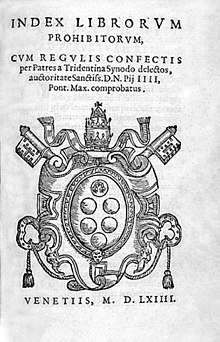The Copyright Monopoly Was Created As A Censorship Instrument – And Is Still Used As One
09.01.2013

[font size=1]When the printing press hit Europe,
royalty and clergy panicked.[/font]
All of a sudden, they had lost the gatekeeper position of determining what culture and knowledge was available to the masses, and by extension, lost control of the political discourse of their time.
At the time, different regimes reacted differently to the threat. France reacted by banning book shops altogether and banning the use of the printing press under penalty of death. The ban was utterly ineffective. (Yes, you read that right: the penalty for unauthorized copying has been escalated as far as the death penalty, still without effect.)
On the other side of the British Channel, Mary I had inherited a Protestant England from her father, who had converted the entire country from Catholicism just in order to divorce her mother (and moved on to marry a half-dozen other women in sequence). Mary wasn’t very happy with the treatment of her mother and had been raised a Catholic; she saw it as her duty to convert England back to Catholicism, no matter the cost in blood.
She took the throne from her cousin in 1553 and started a crackdown on political dissidents that still to this day earns her the nickname “Bloody Mary”. In the time, there was no difference between political and religious dissent – it was a war of power, superficially over Catholicism or Protestantism. Over 280 dissenters were burned alive on Mary I’s orders as a warning to others.
In this environment, she sought a further means to suppress free speech and political dissent. Seeing how France’s death penalty against the printing press had failed miserably, she instead opted for an unholy alliance between capital and the crown. Mary I handed out a printing monopoly on May 4, 1557 to the London Company of Stationers. In return for a lucrative monopoly of printing everything in England, the company would agree to not print anything the Crown’s censors deemed politically insubordinate.
MORE

[font size=1]About The Author
Rick Falkvinge is a regular columnist on TorrentFreak, sharing his thoughts every other week. He is the founder of the Swedish and first Pirate Party, a whisky aficionado, and a low-altitude motorcycle pilot. His blog at falkvinge.net focuses on information policy.[/font]
dipsydoodle
(42,239 posts)DeSwiss
(27,137 posts)
[font size=1]Title page of Index Librorum Prohibitorum, or List of Prohibited Books, (Venice 1564).[/font]
msongs
(67,470 posts) -The kids on YT have already figured it out:
-The kids on YT have already figured it out:
TeknoAXE's Royalty Free Loop Music
Igel
(35,383 posts)There's copyright. There are guilds. Then there's censorship.
Presses were set up as a guild. A central authority to restrict how they'd run. They had the right to make copies of books. You'd register your book with them; then it could be copied. If not run through them, they you violated the press' right to the monopoly. This was British--where the Crown handed out patents.
It provided a simple way to impose censorship. But do not confuse the tool used with the use of the tool. A screwdriver can be used to kill. That does not mean that screwdrivers have their origin in murder. Copyright preceded censorship of that sort; copyright at the time censorship was imposed was a rather different thing from copyright 300 years later. The word's the same, but that's really about all. Words change meanings. "Bird" used to be a small animal, easily a nestling or fledgling bird, but small mammals were also "birds." A bird might grow up to be a fugoll (like German Vogel), or perhaps a cat or weasel. It's a bit crazy to argue from the form of the word that biology has changed because 1000 years ago birds could become cats or weasels. You gotta watch meaning and substance and not think form is all there is.
Over a century later the copyright was changed a bit. Guilds were gone. Presses weren't all that rare, but still had to be licensed and approved. Dissent had become a bit more acceptable. And copyright was shifted from the presses to the writer, so each writer "owned" the work of his hands for a number of years after producing it. He could not be alienated from his production by the simple act of somebody paying for a copy, so to speak. And the argument was that this would allow people to be more creative: You could put time into producing something and reap income from it that would allow you to produce more. Rather than struggle for 5 years to write a book, print it, and only be able to sell it for a few weeks before cheap copies are produced that you get nothing from.
However, presses were still routinely licensed and there was a paper excise tax, so that each page cost so much and had to be paid by the press or the tax waived. Freedom of the press is a nice metaphor but also a fiscal reality. The US Constitution allowed no excise taxes. We needed some Constitional reworking to allow income tax because that's an excise tax on labor.
Copyright, like patents, are still something held by individuals. And the modern idea isn't rooted in censorship. The older idea was rooted in feudalism, with the crown having to approve and license each establishment. Along the way the mechanisms were used for censorship.
DeSwiss
(27,137 posts) - I happen to hold one closer to the author's rather than yours. Thank you for your input.
- I happen to hold one closer to the author's rather than yours. Thank you for your input.